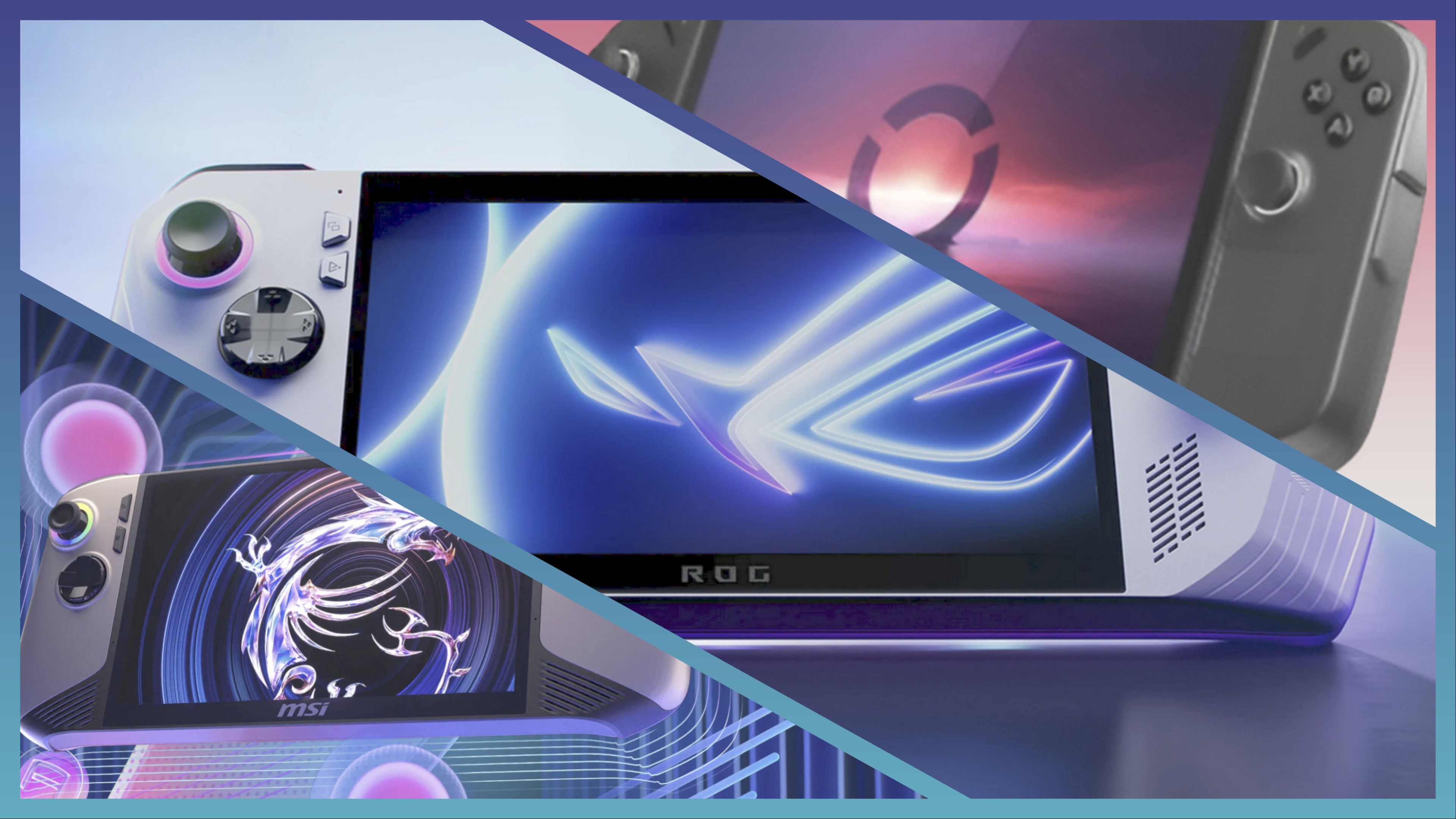Help us, Lenovo, you're our only hope – Legion Go 2's prototype and OLED screen should worry Nintendo, MSI, and other handheld makers
Just don't price it at $1,000...

- The Lenovo Legion Go 2 has leaked in China with prototype units reportedly available to buy on second-hand platforms
- The prototype seen in a Bilibili video isn't using the AMD Ryzen Z2 Extreme
- There's still no confirmation on a release date or what the finalized version of the handheld will be
It's been a while since we've had any updates on Lenovo's release plans or schedule for its next handheld gaming PC, since its announcement and brief showcase at CES 2025. Now, there's yet another twist in the tale, but not in the way you might expect.
As reported by VideoCardz, the Lenovo Legion Go 2 prototype has leaked in China, and units are rumored to be available for purchase on a second-hand platform, ahead of its official release. In a Bilibili video, it already has a brief teardown and showcase – and it's worth noting that the units appear to be missing the AMD Ryzen Z2 Extreme processor.
Instead, it's reportedly using the Ryzen Z2 processor, or at the very least the widely-used (yet older) Ryzen Z1 Extreme. This isn't surprising, since Lenovo has technically confirmed that there will be other configurations of the Legion Go 2, as it stated that "the prototype features up to the new AMD Ryzen Z2 Extreme processor".
However, what is quite odd is the lack of transparency from Lenovo. The Legion Go 2 has been slated for a launch sometime in 2025, and it seems as though that may be around September, based on launch rumors for Mexico, but we've still not seen the device beyond its prototype, despite it apparently launching soon.
There is some very encouraging news, however, as the handheld will use an OLED PureSight touch display, and from what's showcased in the Bilibili video, it's a sight to behold combined with the 8.8-inch display size. While it will likely cost around $1,000, I think the OLED screen may just about justify it, pitting it against competitors like the Steam Deck OLED.

Analysis: I'm still not willing to pay $1,000 for a handheld gaming PC, but a slightly lower price for the Legion Go 2 might be justified
Regardless of how powerful these devices get as the best handheld gaming PCs on the market, I'll always find it very hard to recommend any one of them that hits the $1,000 mark.
I've had the same thought about the new MSI Claw 8 AI+ and the new MSI Claw A8 – but if any device comes close to potentially justifying it, it's the Lenovo Legion Go 2.
Sign up for breaking news, reviews, opinion, top tech deals, and more.
Again, it's still in prototype, so we don't have the full picture of what it will have at launch, hardware and ergonomics-wise. However, I'm willing to bet that the highest configuration will cost $1,000 due to the addition of an OLED screen, combined with the improved performance using the AMD Ryzen Z2 Extreme.
Now, I'm sure I won't be the first one to mention how unappealing that price point sounds, but it's possibly the only handheld that sounds like it might be worthwhile. I know other handhelds using OLED screens and powerful processors exist, but there's no world where you would ever find me recommending a handheld gaming PC that's over $1,500 (I'm looking at you, OneXPlayer).
If the Lenovo Legion Go 2 ends up being priced at or below the MSI Claw 8 AI+'s $899 / £899 / AU$1,799 price, then it instantly becomes an easier recommendation, especially up against the Steam Deck OLED or Nintendo Switch 2 – but again, it may still struggle to sell with a price that isn't affordable.
You might also like...
- Sorry MSI, but you blew it – the Claw A8 is overpriced and could struggle to compete against cheaper rivals like the Steam Deck
- Forget the Switch 2 – this dual-screen handheld gaming PC brings back the glory days of the Nintendo DS, but with all your Steam games
- Finally, the MSI Claw A8 is almost here to rival the Switch 2 and other handhelds – just be ready to pay a hefty sum

Isaiah is a Staff Writer for the Computing channel at TechRadar. He's spent over two years writing about all things tech, specifically games on PC, consoles, and handhelds. He started off at GameRant in 2022 after graduating from Birmingham City University in the same year, before writing at PC Guide which included work on deals articles, reviews, and news on PC products such as GPUs, CPUs, monitors, and more. He spends most of his time finding out about the exciting new features of upcoming GPUs, and is passionate about new game releases on PC, hoping that the ports aren't a complete mess.
You must confirm your public display name before commenting
Please logout and then login again, you will then be prompted to enter your display name.